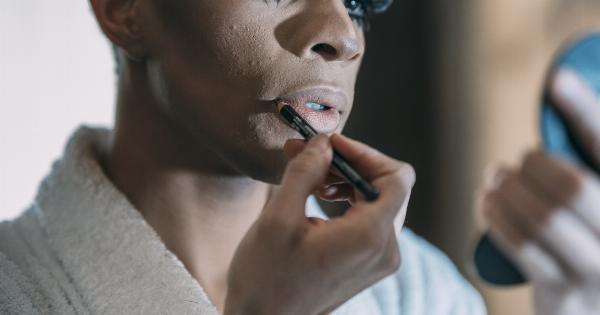Gender roles have long dictated societal norms and expectations surrounding sexual behavior.
Traditionally, men were expected to be dominant, assertive, and sexually aggressive, while women were expected to be passive, submissive, and less sexually experienced. However, these rigid gender roles are based on stereotypes and ignore the vast diversity of human sexuality. In reality, sexual behavior is not determined by one’s gender but rather by individual preferences, desires, and consent.
Societal Expectations and Gender Stereotypes
From a young age, individuals are exposed to societal expectations that dictate how they should behave based on their gender. Boys are often taught to be “masculine” by exhibiting strong, dominant, and sexual behaviors.
Girls, on the other hand, are taught to be “feminine” by being submissive, passive, and less sexually experienced. These stereotypes not only limit individual expression but also perpetuate harmful beliefs about gender roles in sexual behavior.
The Myth of Male Sexual Aggression
One of the most prevalent gender stereotypes surrounding sexual behavior is the belief that men are naturally more aggressive and sexually driven than women.
This myth not only places unfair expectations on men but also disregards the fact that sexual desires and behaviors vary greatly amongst individuals, regardless of gender. While some men may possess assertive tendencies, many others do not conform to this stereotype.
Female Sexual Agency and Empowerment
Contrary to traditional gender roles, women are not passive recipients of sexual advances but active agents with their own desires and preferences.
Women have the right to pursue sexual pleasure, explore their desires, and make decisions about their bodies. Female sexual agency and empowerment should not be undermined or overshadowed by rigid gender roles that suggest women should only be passive participants in sexual encounters.
The Importance of Consent and Communication
In any sexual encounter, regardless of gender, consent and communication are vital. Consent involves obtaining clear and enthusiastic agreement from all parties involved, ensuring that all sexual activities are consensual and based on mutual desire.
It is essential to move away from the assumption that certain genders are more entitled to sexual advances or that they should be the initiators of sexual encounters. Mutual consent, communication, and respect should be the foundation of all sexual experiences.
Breaking Free from Gender Stereotypes
To challenge the fallacy of rigid gender roles in sexual behavior, it is crucial to promote open and non-judgmental conversations about individual desires and preferences.
Empowering individuals to express their authentic selves without conforming to societal expectations allows for a healthier and more inclusive understanding of sexuality.
Recognizing the Spectrum of Sexual Orientations
Sexual behavior is not only varied amongst individuals but also across different sexual orientations. Gender roles surrounding sexual behavior often fail to acknowledge the diversity within the LGBTQ+ community.
Each individual, regardless of their gender identity or sexual orientation, has their own unique preferences and desires. Embracing this diversity is crucial in dismantling the fallacy of rigid gender roles.
The Role of Education and Awareness
Education plays a vital role in dispelling myths and challenging societal expectations surrounding gender roles in sexual behavior.
By providing comprehensive and inclusive sex education, individuals can develop a better understanding of themselves and others. This includes teaching about consent, healthy relationships, and the importance of respecting individual autonomy, regardless of gender.
Celebrating Individuality and Authenticity
The fallacy of rigid gender roles in sexual behavior can only be overcome by recognizing that individuals are not defined solely by their gender but by their unique characteristics, desires, and expressions.
True liberation comes from celebrating and embracing individuality and authenticity, allowing everyone to explore their sexuality without the constraints of societal expectations.
Conclusion
Breaking free from the fallacy of rigid gender roles in sexual behavior is essential for creating a more inclusive and understanding society.
Recognizing the diversity of human sexuality, promoting consent and communication, and challenging gender stereotypes are crucial steps towards a healthier and more equitable understanding of sexual behavior. Let us embrace individuality and empower everyone to express their true selves, free from the expectations imposed by rigid gender roles.






























